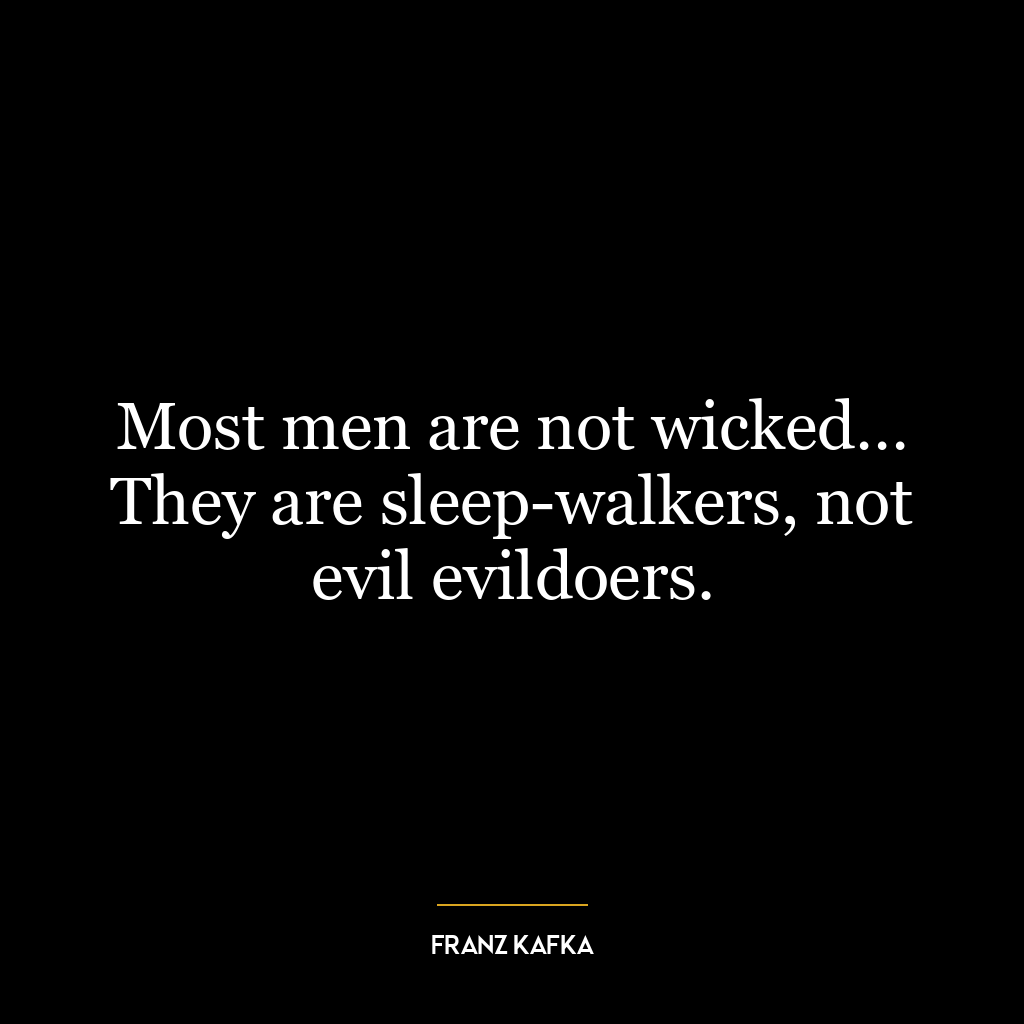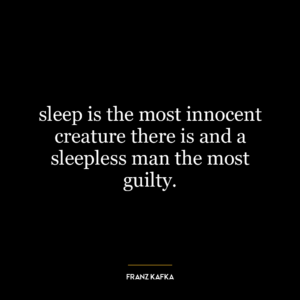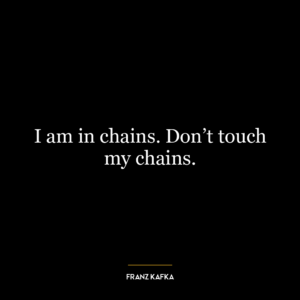Most men are not wicked… They are sleep-walkers, not evil evildoers.
This quote suggests that most people are not inherently evil or malicious, but rather, they are oblivious or ignorant of their actions and their consequences. They are compared to “sleep-walkers,” individuals who act without conscious intent or awareness. The implication is that many harmful actions are not the result of deliberate malice but rather unconscious behavior, lack of self-awareness, or an inability to empathize with others.
In the context of personal development, this quote can offer a perspective on self-awareness and personal growth. It suggests that to avoid causing harm, individuals need to wake up from their metaphorical sleep-walking and become more aware of their actions and their impacts. It can be a call to self-reflection, encouraging individuals to scrutinize their behavior, question their motivations, and consider the potential consequences of their actions.
In today’s world, this quote is particularly relevant given the prevalence of casual or unconscious bigotry, discrimination, and harm. Many societal issues stem from individuals acting without considering the repercussions of their actions on others, particularly those from marginalized or disadvantaged groups. This could be seen as a form of sleep-walking, where individuals act without conscious intent to harm, but still cause damage due to their lack of awareness or empathy.
The quote can serve as a reminder that it is not enough to simply avoid deliberate harm. True morality and empathy require active awareness and consideration for others, a willingness to question our actions and their impacts, and a commitment to personal growth and improvement.















